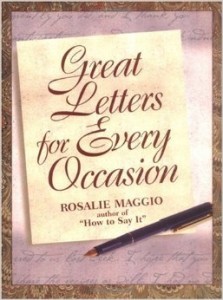Recently, I sat at my desk, intending to write a sympathy card to a good friend but found myself floundering. I started writing a few phrases and then stopped.
I couldn’t find the right words that I thought would offer comfort. It was a struggle to get my thoughts on paper and it seemed as if everything I wrote sounded awkward.
I started again. I opened the card and started to write and stopped. Maybe I was over thinking what I wanted to say, but everything I came up with sounded so trite. Of course, I was sorry and very sad about the person’s death but the words that I thought would be appropriate just didn’t seem to send the message I wanted. “Sorry” just didn’t seem to cut it. Not when I knew how much the other person was hurting and how difficult it was going to be to adjust to this loss.
If I could have, I would have drawn a picture of the person’s broken heart with my arms around it. There truly are circumstances when words don’t seem deep enough, warm enough or comforting enough to use.
I decided to refer to a book I use at work for business correspondence called, “Great Letters for Every Occasion.” It’s written by Rosalie Maggio and I use it because I like her down-to-earth approach to correspondence. This time I turned to her chapter on Sympathy and Condolence letters and found some helpful guidance on what to say and what not to say.
In trying to offer support to a bereaved person, I think both parties are at a strong disadvantage. The person offering comfort is afraid they are going to upset the bereaved person and the bereaved person is shocked and emotionally exhausted. It’s a tricky area. Even so, I can’t imagine that people say some of the things that Maggio cites as comments you should AVOID saying. Here’s a few:
— Keep busy, you’ll forget.
— Be thankful you have another child.
— Be happy for what you had. — You’ll get over it. — She is out of her misery at least. — I heard you’re not taking it well.
Maggio also says that you shouldn’t rely on well-meaning but hurtful cliches, false cheerfulness and optimistic platitudes.
In a Reader’s Digest article, “An Etiquette for Grief,” Crystal Gromer says, “In the context of grief, cliches are simply bad manners. . . . ‘At least he didn’t suffer,’ people say. ‘At least he’s not a vegetable.’ Any time you hear ‘at least’ come out of your mouth, stop. –Creating an imaginary worse scenario doesn’t make the real and current one better. It trivializes it.
Lynn Caine (Widow) writes, “It infuriated me to have people say, ‘I know you’ll be feeling better soon.’ I wanted people to sympathize with how terrible I felt then and there. Lynn Caine says most of the condolence letters she received were more about the writer’s awkwardness, discomfort and inadequacies than about her sorrow or their shared loss. There is a fine line between expressing your sorrow and dramatizing your own reactions, Caine adds.
Instead, Maggio offers suggestions on what is helpful to say to those who have just lost a loved one: –My heart goes out to you as you grieve the loss of your (insert the person’s relationship to bereaved) –I send you my deepest sympathy on (insert the person’s name) –It was with a profound sense of loss that I learned of (insert the person’s name)’s death. –We are all grieving with and for you. –You have our deepest sympathy and our love and friendship always.













Leave a Reply